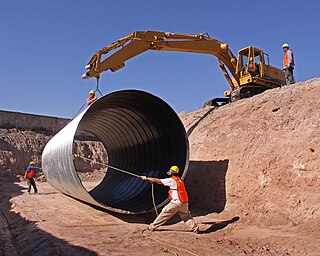| C18 | |
|---|---|
| ILO Convention | |
| Date of adoption | June 10, 1925 |
| Date in force | April 1, 1927 |
| Classification | Employment Injury Benefit |
| Subject | Social Security |
| Previous | Workmen's Compensation (Accidents) Convention, 1925 |
| Next | Equality of Treatment (Accident Compensation) Convention, 1925 |
Workmen's Compensation (Occupational Diseases) Convention, 1925 is an International Labour Organization Convention.
It was established in 1925:
Having decided upon the adoption of certain proposals with regard to workmen's compensation for occupational diseases,...
This Convention was subsequently revised in 1934 by Convention C42 - Workmen's Compensation (Occupational Diseases) Convention (Revised), 1934, and again in 1964 by Convention C121 - Employment Injury Benefits Convention, 1964.
As of 2013, the convention had been ratified by 68 states. Of the ratifying states, eight had subsequently denounced the treaty.

Workers' compensation or workers' comp is a form of insurance providing wage replacement and medical benefits to employees injured in the course of employment in exchange for mandatory relinquishment of the employee's right to sue his or her employer for the tort of negligence. The trade-off between assured, limited coverage and lack of recourse outside the worker compensation system is known as "the compensation bargain". One of the problems that the compensation bargain solved is the problem of employers becoming insolvent as a result of high damage awards. The system of collective liability was created to prevent that, and thus to ensure security of compensation to the workers.

Lindsay Carter Warren was a Democratic politician who served as a U.S. Congressman from North Carolina between 1925 and 1940 and the third Comptroller General of the United States from 1940 to 1954.
Workmen's Compensation (Agriculture) Convention, 1921 is an International Labour Organization Convention.
Workmen's Compensation (Accidents) Convention, 1925 is an International Labour Organization Convention.
Equality of Treatment Convention, 1925 is an International Labour Organization Convention.
Protection against Accidents (Dockers) Convention, 1929 (shelved) is an International Labour Organization Convention.

The Forced Labour Convention, the full title of which is the Convention Concerning Forced or Compulsory Labour, 1930 (No.29), is one of eight ILO fundamental conventions of the International Labour Organization. Its object and purpose is to suppress the use of forced labour in all its forms irrespective of the nature of the work or the sector of activity in which it may be performed. The Convention defines forced labour as "all work or service which is exacted from any person under the menace of any penalty and for which the said person has not offered himself voluntarily", with few exceptions like compulsory military service. The convention excludes "adult able-bodied males", to whom legal imposition of forced labour is allowed.
Protection against Accidents (Dockers) Convention (Revised), 1932 is an International Labour Organization Convention.
Workmen's Compensation Convention (Revised), 1934 is an International Labour Organization Convention.
Employment Injury Benefits Convention, 1964 is an International Labour Organization Convention.
Maternity Protection Convention (Revised), 1952 is an International Labour Organization Convention.
Protection of Workers' Claims Convention, 1992 is an International Labour Organization Convention.
Seafarers' Identity Documents Convention, 1958 is an International Labour Organization Convention.
Prevention of Accidents (Seafarers) Convention, 1970 is an International Labour Organization Convention.
Chemicals Convention, 1990 is an International Labour Organization Convention.
Safety and Health in Mines Convention, 1995 is an International Labour Organization Convention. It was adopted at the 82nd International Labour Conference (ILC) of the International Labour Organization (ILO). The ILO is an agency under the United Nations that deals with international labor issues while promoting workers rights and opportunities. One of ILO's goals is to hold annual labor conventions to create legally binding contracts for participating nations to ratify. During the Safety and Health in Mines Convention (C176), it was recognized that there are inherent hazards in the mining workplace, and a need for a convention was mandatory.
The following outline is provided as an overview of and topical guide to the United Nations:
Work in Fishing Convention (2007) C 188, was adopted at the 96th International Labour Conference (ILC) of the International Labour Organization ILO in 2007. The objectives of the Convention is to ensure that fishers have decent conditions of work on board fishing vessels with regard to minimum requirements for work on board; conditions of service; accommodation and food; occupational safety and health protection; medical care and social security. It applies to all fishers and fishing vessels engaged in commercial fishing operations. It supersedes the old Conventions relating to fishermen.
The Workers' Compensation Board of British Columbia, operating as WorkSafeBC, is a statutory agency that came into existence in 1917, after the provincial legislature put into force legislation passed in 1902. This legislation is known as the Workers Compensation Act.
The Conventions concerning Employment of Women during the Night are conventions drafted by the International Labour Organization (ILO) which prohibit women from performing industrial work during the night. The first convention was adopted in 1919 and revised versions were adopted in 1934 and 1948. A protocol to the convention was adopted in 1990 allowing for easing of the restriction under conditions. As of April 2011 the conventions had 27, 15, 46 (undenounced) ratifications respectively. The protocol was ratified 5 and denounced by 2.